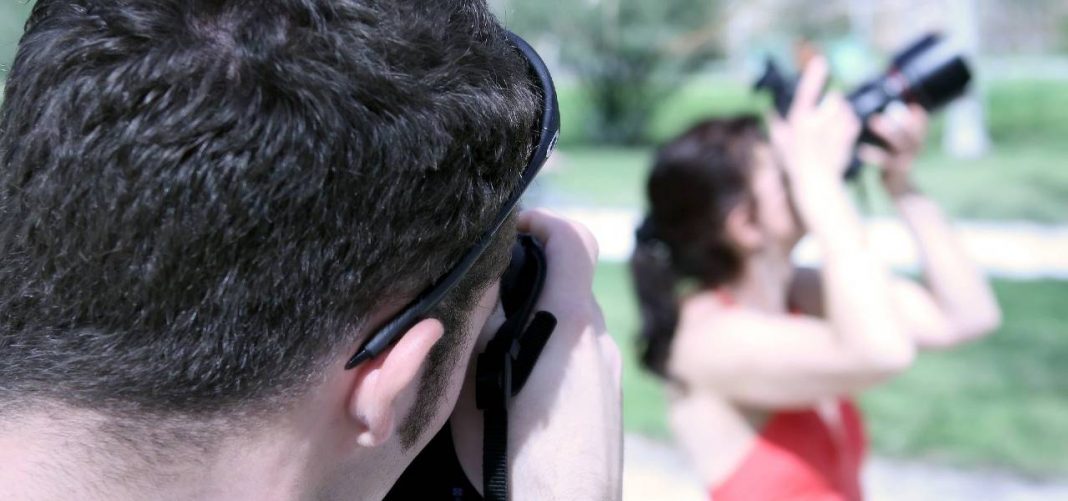UPDATED February 10, 2022 This piece has been updated to reflect the emergence of new technology


Christian Mathews Security Writer
According to Data USA, the number of Private Investigators has been increasing at an average rate of 8.45%. Up to the year 2018, there were approximately 93,000 private investigators in the U.S alone. Now depending on how you look at it or your situation, this can be a cause for alarm or joy. Many individuals ask what is a private investigator allowed to do.
If you feel like you’re being watched or investigated by a private investigator for whatever reason, it is worrying. Not only are there many private investigators out there, but most are proficient at digging up data and information about you, and if you’re on the run, well, they can easily find you.
If, however, you were looking to hire a private investigator, there’s quite a variety you can choose from.
To ensure you stay on the right side of the law, here are a few things you must know about private investigators and what they’re allowed to do:
- What does a private investigator do?
- Are private investigators legal?
- How do private investigators work?
- What can a private investigator do legally
- What information can a private investigator obtain
- What can a private investigator not do
1What does a private investigator do?
Here but a few things a private investigator does while executing their duties:
Conducting background investigations on individuals or entities as requested by a client.
To do this, private investigators collect information on an individual/entity’s past activities i.e. behavior patterns, criminal records if any, etc.
Most of this data is easily found by a private investigator in the public domain/databases.
Researching an entity/individual
This can be done in an office, where the private investigator pieces together data and information on an individual/entity to form a case profile, or they may have to conduct field surveillance of the subject.
The private investigator needs to verify all this data and information to ensure it is authentic.
Investigating the whereabouts of missing persons, kidnappings, threats, blackmail or even compensation claims made to insurance companies
Where the law allows it, private investigators can be brought in to assist in investigations. They may work alone or jointly cooperating with law enforcement officials.
Conduct interviews to collect more information on a case or individual.
A private investigator may have to interview the person of interest, or their associates and using any information that comes forth to compile a report.
Other things private investigators do include: testifying in court when required, serving court orders or subpoenas, and even tracking debt defaulters among others.
2Are private investigators legal?
If a private investigator is registered and licensed in the jurisdiction they operate, they are perfectly legal.
Private investigators are bound by the law. Any actions they perform which may be in breach of the law, cause them and any activities they may conduct to be illegal regardless of whether they are licensed and registered.
We’ll get to that shortly, on what a private investigator cannot do. For now, we’ll talk about what is a private investigator allowed to do.
3How private investigators work
Unlike in movies, a proper private investigator works in a series of steps as outlined below:
- First the private investigator/agency meet with the client to receive instructions. In this meeting, it can be determined whether or not it would be possible to conduct investigations, and if it is legal.
- Once it has been determined to be possible and legal, the private investigator can agree with the client on the budget and the methods to be used in the investigation.
- The private investigator then conducts investigations and compiles a report. Various equipment are used in the investigation. This could range from small binoculars to listening devises.
- The private investigator then analyzes and verifies all information that has been collected before presenting the client with the final report on findings.
4What can a private investigator do legally?
Since private investigators are considered civilians, there are many things they can do legally in the course of collecting information, that they cannot be mentioned fully.
To get a better picture of this, it is much easier to go by what private investigators cannot do.
5What information can a private investigator obtain?
Private investigators can access 3 vast categories of data. However, this depends on the laws in place.
Public records
Any information that is in the public domain or public databases can be accessed by a private investigator. This can be birth records, marriage or divorce records, current/previous addresses, homeownership status, phone number, etc.
For public records, a private investigator will not need a court order or permission to access this data.
Proprietary databases
Currently, personal data a valuable commodity.
Companies like IDI commoditize personal user data and sell them to the highest bidder.
How do they get your information? You may ask. IDI makes use of websites like sampleandsavings.com and when you sign up, you’ll be giving up your data.
Private records
In some jurisdictions, licensed private investigators are allowed to access private records.
Information like expunged criminal records can be accessed by a private investigator.
6What can a private investigator not do?
The following is a list of things a private investigator cannot do, failure to which, they’ll be in breach of law and all activities they engage in will be deemed illegal.
Impersonating law enforcement officers
In the course of their work, all private investigators are required to inform any potential interviewees, informants or witnesses that they are not law enforcement officers, nor are they affiliated to any similar government agency.
Private investigators are also prohibited from carrying badges, wearing law enforcement uniforms or anything that may present them as law enforcement officials.
However, there are exceptions to this; certain jurisdictions may require private investigators to carry some kind of badge.
Similarly, private investigators are allowed or prohibited from carrying firearms depending on the local laws in place.
Trespass
This requirement is enshrined in the common law. As for private investigators, it applies to them too.
Most jurisdictions prohibit private investigators from accessing a subject’s property, without either a valid court order or authorization from the owner/subject.
Similarly, when conducting surveillance, a private investigator can only observe or take pictures of a subject while they’re in public. They cannot observe or take pictures of the subject when they are at home or on private property, since everyone is guaranteed by law and expects privacy when they are on their property.
Accessing protected information
In some jurisdictions, private investigators are barred from accessing a subject’s protected information without the subject’s consent, or valid court order.
Protected information includes, but is not limited to credit records, financial records, criminal records, and phone records.
Effecting arrests
Private investigators are considered civilians and all civilian laws apply to them.
If a private investigator witnesses a crime being committed jurisdictions allow them to perform a citizen arrest, where they can detain the suspect and inform local law enforcement who are then mandated to arrest and take the suspect into lawful custody.
They are not allowed to pursue a subject aggressively or arrest anyone without reasonable cause.
Wiretapping
A private investigator is not allowed to record someone else’s phone conversations.
However, this applies differently based on the law.
Certain jurisdictions may allow for wiretapping when one party in the phone conversation agrees to it. Other jurisdictions may prohibit wiretapping completely unless both parties agree to it.
7Conclusion
Now that you what is a private investigator allowed to do and how they work. Always ensure that the private investigator you choose to hire is legally registered and licensed and that the investigation is carried lawfully. Failure to which, your evidence may be dismissed in court and you may be found liable for any illegal activities done by the private investigator. If you are on the receiving end, you may want to know how to stop a private investigator from following you.


















































